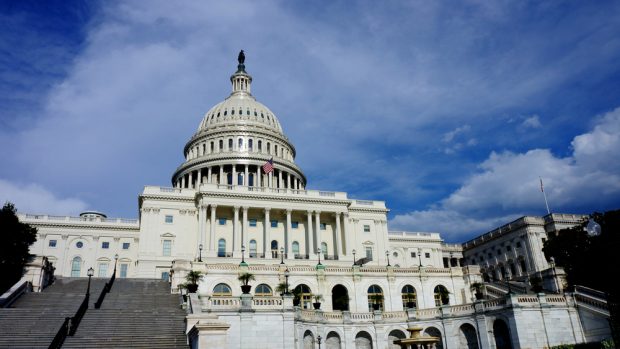 U.S. Capitol steps. (Source: Shutterstock)
U.S. Capitol steps. (Source: Shutterstock)
More than six months after the Small Business Administration (SBA) published its proposed changes to the 7(a) lending program, there doesn't appear to be many, if any, public supporters coming from the financial services industry.
The negative comments surrounding the SBA's proposal continued during Wednesday's hearing at the House Small Business Committee.
Recommended For You
According to the SBA, the proposed changes include opening the 7(a) loan program to an unlimited amount of non-federally regulated lenders and fintechs.
During testimony, Alice Frazier, president/CEO of the Bank of Charles Town in Charles Town, W. Va., said the SBA's proposed rule changes could create a "serious threat" to the overall integrity to the entire 7(a) lending program.
"The new SBA rules, which were rushed through the process without input from Congress or the industry, will undermine this critical goal," Frazier said. "We recommend the agency hit the pause button and convene a working group of existing SBA lenders to determine how we can better align the program with the SBA mission of reaching the smallest businesses and entrepreneurs."
Frazier continued, "We believe that the SBA's new Small Business Lending Company rule, which will admit nonbank financial technology companies, or fintechs, to the 7(a) program, is a serious threat to its integrity."
NAFCU Vice President of Legislative Affairs Brad Thaler, who has filed multiple letters with lawmakers objecting to the proposed changes, submitted those objections again to the committee.
"While these new rules have a laudable goal of trying to increase financial inclusion, we think they miss the mark," Thaler wrote. "As champions of financial inclusion, credit unions have been at the forefront of efforts to increase access to personal and small business financial services for underserved communities. Credit unions have grown their overall business lending portfolio by more than 20% this past year, which is nearly identical to the growth rate over the past five years."
Thaler's letter continued, "At the same time, NAFCU has worked tirelessly to ensure that non-depository financial institutions such as fintechs operate on a level playing field with credit unions to protect consumers and small businesses. Unfortunately, we are concerned that these new rules will end up running counter to these efforts by opening the programs to unregulated competition."
In a letter last week to committee members, CUNA President/CEO Jim Nussle stated the organization supports the goals of the SBA to streamline the process, but said "we believe that the proposed changes may not actually help ease minority and underserved communities' access to SBA funding, and in fact, could unintentionally harm the very borrowers that SBA is trying to support. Furthermore, we believe that the combined impacts of these proposed changes could lead to additional negative impacts on various stakeholders, including, but not limited to, current and future borrowers of SBA loans, by lowering material standards related to underwriting and portfolio performance."
© Touchpoint Markets, All Rights Reserved. Request academic re-use from www.copyright.com. All other uses, submit a request to [email protected]. For more inforrmation visit Asset & Logo Licensing.







